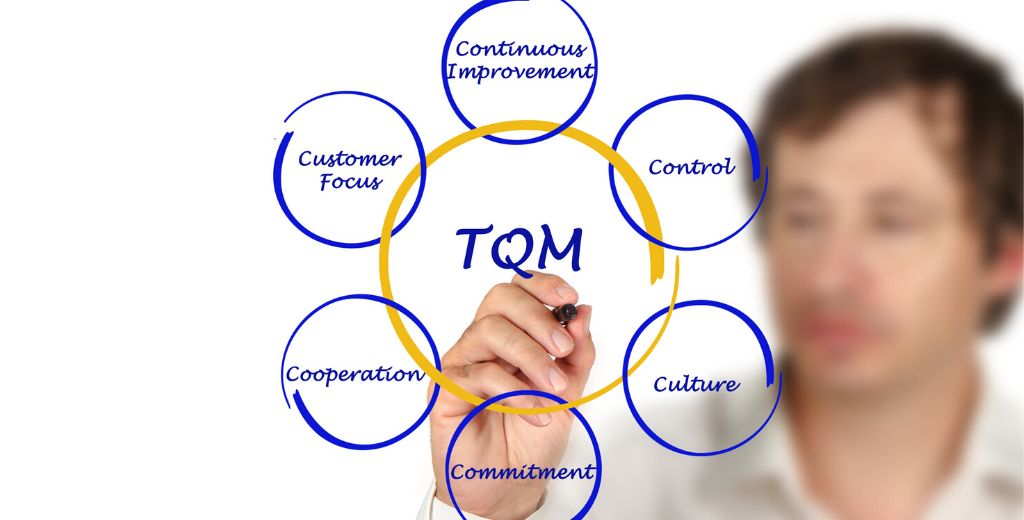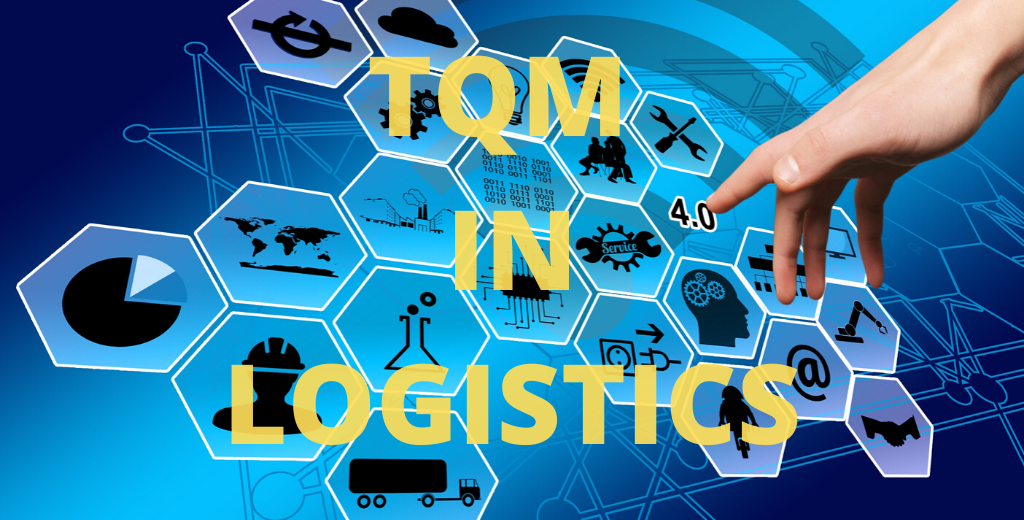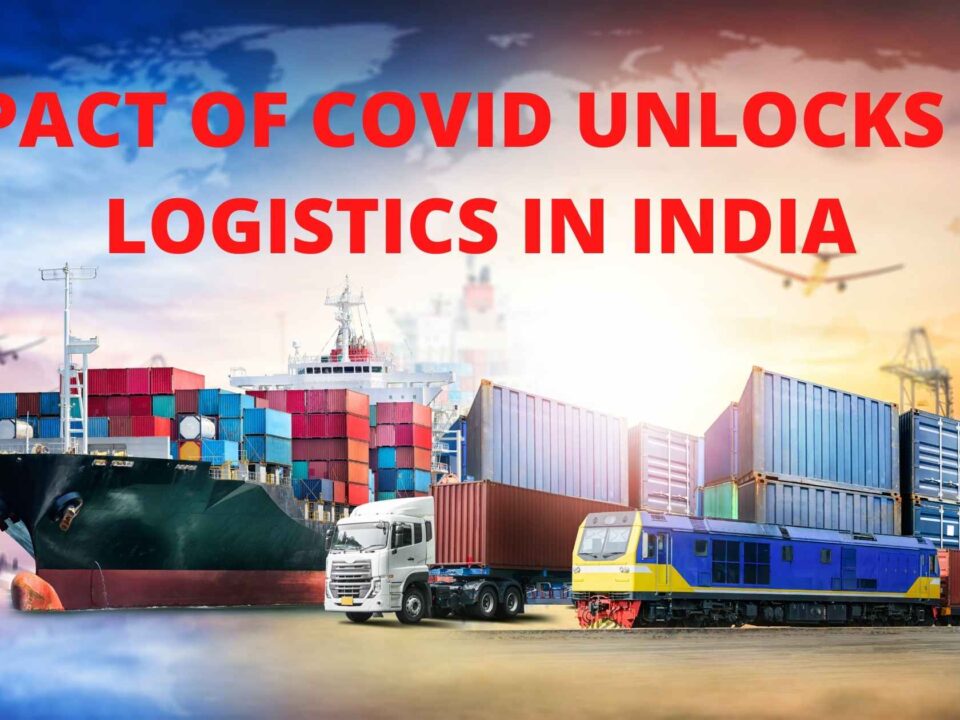Importance of Total Quality Management (TQM) in logistics industry

Kolkata to Nepal transport services
May 13, 2020
ISO CERTIFICATION IN LOGISTICS
June 22, 2020What Is Total Quality Management (TQM)?
Total Quality Management (TQM) is the ongoing process of identifying and minimizing or removing manufacturing defects, streamlining manufacturing operations, maximizing customer service, and guaranteeing that workers are trained to pace. Full quality control seeks to keep all manufacturing stakeholders responsible for the overall quality of the finished product or service.
William Deming, a management consultant whose research had a significant influence on Japanese industry, developed TQM. Although TQM shares much with the Six Sigma improvement method, it isn’t quite the same as Six Sigma. TQM seeks to ensure that internal protocols and process requirements minimize errors while Six Sigma aims to reduce flaws.
Understanding Total Quality Management

(TQM) is a systematic approach to overall management of the organizations. The method focuses on enhancing the quality of the products of a company, including goods and services, by continually improving the internal practices. The guidelines required in the TQM approach can represent internal objectives as well as any industry standards currently in place.
Performance standards may be established at various levels and may require adherence to specific laws and regulations regulating the activity of the company in question. Industry requirements can also require the development of goods to an understandable standard, even if official regulations do not follow the norm.
Primary Principles of Total Quality Management
TQM is deemed a client-focused mechanism and strives to continuously enhance operations. It aims at ensuring that all related employees work towards the specific objectives of improving product or service quality and improving the production processes in place.
Particular focus is placed on fact-based decision-making, using performance indicators to track progress; high rates of internal communication are promoted to improve employee engagement and morale. The 8 Principles of TQM are;
- Customer focus
The first of the concepts of TQM brings the emphasis back on the customers who purchase the product or service. The quality of the goods focuses on your customers. If your product meets a requirement and lasts for as long or longer as anticipated, consumers know they have invested their money on a premium product.
When you figure out what the customer wants or needs, you have a greater chance of figuring out how to deliver the best products, people and processes to fulfil their standards and surpass them.
To implement this TQM principle:
- Survey and consider the needs and desires of your customers;
- Match your business priorities with consumer needs.
- Communicate, assess satisfaction with customers and use the findings to identify ways to enhance processes.
- Manage client relations.
- Seeking a way to please clients and other stakeholders (such as owners, staff, suppliers and investors).
- Total employee commitment
Without the complete dedication of all workers you can’t improve efficiency, processes or revenues. They need to grasp the shared dream and priorities. Workers must be properly qualified and provided the necessary tools to complete tasks in order to devote themselves to achieving timely goals.
To implement this TQM principle:
- Communicate clearly and recognize the significance of each ones contribution to the finished product.
- Stresses that each team or entity recognizes ownership and gives them the obligation and ability to address problems as they arise;
- Empower workers to self-assess performance against personal goals and objectives, and make adjustments to enhance workflow as appropriate.
- Identify achievements and improved results to create trust in your staff and stakeholders;
- Clear up obligations, have appropriate training and ensure that the services are used in the most effective way possible.
- Encourage people to keep searching for opportunities to learn and move into other roles to increase their knowledge, skills and experience.
- Promote an atmosphere in which staff can discuss problems openly and recommend solutions to handle them.
- Process approach
Strict adherence to procedures is key to maintaining quality. Procedures ensure that the appropriate steps are taken to ensure accuracy and accelerate production at the proper time.
To implement this TQM principle:
- Employ Total Quality Management software to identify and demarcate specific roles and obligations, such as process flowcharts, so that everyone understands who is doing what at all times.
- Create a clear action plan so that everyone can clearly see the different tasks required to achieve the desired outcome.
- Examine and evaluate existing operations to see where changes can be made or where inefficiencies are being produced during the process.
- Assess the effect of your processes and practices on your clients, suppliers and other
interested parties

- Integrated system
A company usually has several different divisions, each with its own unique roles and aims. Such divisions and functions should be associated with horizontal processes which should be
the subject of TQM. But these divisions and functions still run in separate silos sometimes.
Everyone should have a clear understanding of procedures, principles, priorities and processes within an integrated framework. Integrated processes help the business search for quality improvement to obtain a competitive advantage.
To implement this TQM principle:
- Cultivate a quality-focused work culture.
- Use flowcharts and other digital tools to help workers recognize how their roles complement the rest of the enterprise.
- Using as-is process review to see where to make changes.
- Provide training for staff who need to learn new procedures and who wish to create an opportunity for progress.
- Strategic and systematic approach
This concept is defined by the International Organization for Standardisation (ISO) as:
“Identifying, recognizing and controlling interrelated processes as a framework leads to the productivity and effectiveness of the company in attaining its goals.”
Multiple processes are handled as a process system within a creation or production cycle, in an attempt to improve productivity.
To implement this TQM principle:
- Provide the right training and resources for your people to help them accomplish their individual steps in this process.
- Continually develop processes and services, and update equipment to meet objectives when appropriate.
- Make quality improvement a tangible priority for all workers.
- To identify, recognize and appreciate breakthroughs and changes to processes.
- Continual improvement
There’s no achieving optimal productivity and absolute customer satisfaction in a day — your company should continually find ways to enhance processes and adjust the goods and services as consumer desires change. As already mentioned, the other concepts of TQM will enable your company to keep an eye on continuous improvement.
To implement this TQM principle:
- Incorporate product, process and program development strategies as tangible goals for people, teams, and departments.
- Understanding, recognizing and encouraging creativity to strengthen processes and advancement.
- Invite workers to engage in the training programs available to learn and perform new and enhanced roles;
- Fact-based decision-making
Analysis and the collection of data contribute to informed decisions based on the knowledge available. Taking responsible decisions increases consumer and industry awareness.
To implement this TQM principle:
- Review and verify the data to guarantee it is correct and reliable.
- Provide relevant information to the stakeholders.
- Use reliable data-collection and research methods.
- In addition to your expertise and instincts, make decisions based on the information learned from the results.
- Communications
Everyone in the company needs to be made aware of the plans, tactics, and approaches that will be used to attain objectives. If you do not have a successful communication strategy, there’s a greater chance of failure.
To implement this TQM principle:
- Create an official contact line to ensure all workers are aware of promotions, policy revisions and updated procedures.
- Engage workers in decision-making, whenever feasible.
- Ensure every department knows its responsibilities and how it fits in with the rest of the business.
Why Is Total Quality Management Important to an Organization?
Implementing a TQM philosophy can benefit an organisation, in addition to leveraging a native asset:
- Make sure company satisfaction and customer loyalty
- Ensure better profits and greater efficiency
- Lessen waste and stocktaking
- Improve Layout
- Respond to changing infrastructure and business conditions
- Raising productivity
- Boost brand value
- Eliminating faults and excess
- Raising job protection
- Enhancing productivity for workers
- Cutting prices
- Improving productivity
What Are the Costs of Quality?
One of TQM’s fundamental principles is that the cost of doing something right the first time is much less than the possible cost of doing it again. Residual damages often arise when consumers are abandoning goods and brands for considerations of price. Many schools of thought find quality to have a cost that cannot be recouped. A particular opinion was held by Juran, Deming and Feigenbaum. For TQM proponents, the quality cost also represents the cost of failing to produce a deliverable product. There are four types of prime costs:
- Appraisal Costs: The cost of evaluation includes inspection and testing during the entire manufacturing process. This involves checking that the materials obtained from the manufacturer follow requirements and ensuring that goods are suitable at each manufacturing level.
- Prevention Costs: Costs for mitigation require careful setting up of performance and healthy workspaces, and careful preparation and planning. This form of expense involves even the conduct of reviews. Preventive practices frequently obtain the lowest allocation of the budget of an organization.
- External Failure Costs: This category refers to the expense of problems following market introduction of a product. These may involve compliance problems, recalls of goods, replacements and fixes.
- Internal Failure Costs: Internal problems are the effect of issues before consumers encounter the goods. Examples of internal failures include broken equipment resulting in delay and downtime, defective materials, runs of scrapped goods and prototypes needing rework.
Approaches to TQM
The following are the major approaches to total quality management.
- Just in Time: Cutting buffers for inventories: raw product, production in progress, finished products, energy, information.
- Quality Circles: Cutting red-tapism by encouraging the workforce to build solutions.
- Statistical Process Control: Eliminating tolerance buffers by tracking procedures closer: prepare, do, test act.
- Total Quality Control: Dropping group / role barriers by turning divisions and roles into cross-functional actions.
- Process architecting: Re-founding the workers from the ground up for improved efficiency.
- Process improvement: Analysis of a company’s architectural processes to develop it.
- Process Deployment Automation: Modifying process technologies in the organisation.
- Automation of procedure execution: Automation of the daily operations in the organisation.
- Total preventive maintenance: Scientific protection by means of systematized equipment treatment.
- Robust architecture: Experimental design, optimizing the signal-to – noise ratio for reliable output in the long term.
- Statistical & Management Tools: historiographies, check sheets, diagrams of cause and effect, diagrams of connection.
- High-tech circles: implementation of high-tech methods, such as expert systems, multi – variate statistics, study of inconsistencies.
- Customer-aided design: Shifting the role of product design to customers rather than depending on gut-feel.
- Customer-managed business: Having clients manage the structures and procedures of the organization.
- Kansei Engineering: Expand organisation’s systems until they can adapt to consumer’s emotional content.
- Middle-up-down governance: putting company processes under the hands of generations other than the usual decision takers.
- Automation Deployment: Automation of quality processes already laid down to buy workers time to develop those processes.
- Introduction of new Technology: Use of modern technologies in the enterprise before the existing one is redundant.
- Deployment of quality functions: Mapping consumers needs to be actively involved in all operations within the organisation.
- Regulation Deployment: Involving all employees in a company’s policy making process.
- Cognitive standard of working life: Identifying the capacity of the company to think, learn, and innovate in terms of consumer needs.
- Meta cognitive organization: The assessment and enhancement of the cognitive cycle at all organizational levels.
- Social Democratic Quality: Type of management focused on how university study workgroups appear to operate.
- Democratic Scientific governance: a meta-quality organization where all workers can develop cognitive functions.
Industries Using Total Quality Management
Although TQM emerged in the manufacturing sector, it can apply its principles to a wide range of industries. It is designed to have a coherent vision for structural change with an emphasis on long-term progress over short-term objectives. With this in view, TQM can be seen in many sectors, namely manufacturing, banking and finance, as well as medicine.
Such methods can also be extended to all departments within a single organisation, as well. This helps ensure that the staff work towards the company’s objectives, enhancing operation in each region. The divisions involved may include management, communications, manufacturing and employee training. The relation between logistics and TQM is that TQM helps in the betterment of logistic services. Influence of TQM on improvement of logistics processes are many and wide reaching. The degree of the impact of TQM to improve logistics customer service is deep seated and very positive.
Many Logistics companies on the home turf, i.e., Kolkata are also choosing Total Quality Management because of the positive outcomes being noted. Jayesh Logistics is one such, which provides logistics services in Kolkata, and is employing TQM methods in its functioning. Jayesh Logistics specialise in full truck load services, break bulk cargo and many other logistics services. We provide logistics services from Kolkata to other places like Nepal. The employment of TQM methodology has provided benefits in terms of both efficiency and customer satisfaction. Jayesh Logistics is one of the many logistics firms swearing by TQM methodology.




